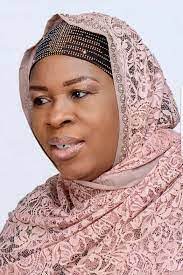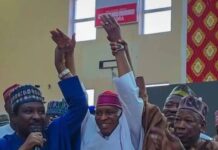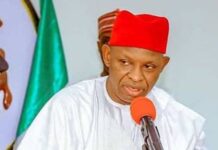Takeaways from British political crisis, by Zainab Suleiman Okino
In less than 60 days, the British people had three prime ministers. Some people attributed it to their conservative political system and mocked them for that, but I beg to disagree. Why wait for four destructive years to challenge or change a government that is lethargic and does not show any sign of promise even in its infancy, if it can be shown the way out in a few weeks or days. That is the difference between the British and our political systems couched as parliamentary and presidential systems. Whatever! The question is in its workability and who the operators are. While theirs seems to be working for them, ours has failed the Nigerian people.
Nigeria started out as a parliamentary democracy but the lure of the American presidential system soon took over. Now we are everything that the American presidential system is not. The institutional support to make any form of government work does not exist here; the kind of institutional support that eased out a supposed strong man like Donald Trump out of office in the US and ushered in an unlikely figure like Rishi Sunak in the UK.
READ ALSO: Governors, constitutional amendments and the endless charade, by Zainab Suleiman Okino
We deal in the strong man mentality; we lionise and idolise individuals. When leaders are rulers, institutions, if any, suffer.
Hilary Clinton was born in Chicago, started out as a politician and first lady in Arkansas, moved to Washington as the first lady, became a senator in New York before serving as Secretary of State, yet her most important identifier is as American, no matter where she traverses.
The British-type parliamentary system that we abandoned in 1979, has just produced Rishi Sunak as the first UK Prime Minister of Indian descent. There is no cry of marginalisation and ‘we no go gree’, ‘it is my turn or our turn’, ‘he is not of my religion’, ‘he will marginalise us’, because while Sunak’s DNA and physical look is Indian, he is every inch a Briton.
He is not an Indian Prime Minister; he is not a Turkish Prime Minister. He is the Prime Minister of the British people—red, white, black, or patchwork of Britain” similar to Joseph Conrad’s “patchwork of Europe’ in his literary work, Heart of Darkness. His mother was born in Tanganyika, now Tanzania, his father was born in Kenya, yet all that fizzled out into insignificance when a combination of providence, happenstance and cultural diversity of the British system threw him up as Prime Minister last month.
So, for us here, it is not about lessons to be learnt from the British recent political events, it is about lessons not learnt in decades of independence and not likely to be learnt. People of minority backgrounds can make impact in forward-looking countries like the UK and US, Nigerian citizens not resident in their states of origin cannot hope and aspire for political offices in states they were born. All within Nigeria, though there are a few insignificant exceptions in Lagos and a few states in Northern Nigeria.
It means we are not growing as a nation of people with common destiny but disparate ethnic groups holding on to our primordial fault lines. We do not speak of or love ourselves as Nigerians. It is a pity some Nigerians who glorify only their ethnic and support only their own people are supposedly global citizens; they hold passports of other countries that are liberal with such policies. Don’t we all know this? Have we taken a cue from such progressive policies of other countries?
China’s ruling Communist Party has just held their congress and handed another five-year term to their leader, Xi Jinping. if you put aside your biases and preferences for either capitalism, communism, representative democracy or any form of government for that matter, China’s form of government seems to be working for her and her people.
Every five years, some 2,300 delegates gather at Tianamen square’s Great wall to elect, legitimize, or validate their leaders—the president, 25-member Politburo, while the Politburo elects a 7-member standing committee. It is that simple. Totalitarian or not, China is working; the country is competing with the US as the second largest economy in the world.
Here we prepare in grand style for elections, to elect 469 over-fed federal legislators to Abuja, elect 36 state governors, thousands of state legislators, hand-pick thousands of political appointees at all levels including ministers and commissioners and elect an all-powerful president, yet the country is down on its knees economically, fractured politically and backward in all indices.
Without drama and fanfare, Sunak emerged. Without sinking billions of Naira in election, the seamless system that produced his predecessors threw him up. On the day he met with King Charles and was formally proclaimed Prime Minister, his cabinet was ready within hours. Sunak formed his government immediately while we spend weeks consulting oracles, deities, different gods in the name of stakeholder-consultations before a cabinet of non-superhuman, but average intelligence quotient, can emerge.
Sunak paid glowing tributes to his predecessor Liz Truss and admitted she made honest mistakes without attempting to defend the indefensible because of party loyalty. The elegance, simplicity and less expensive nature of their system of government should endear it to us, as against the elaborate preparations for election and huge financial burden the nation bears, just to end up with lack-lustre leaders.
The fact that the presidential system failed to engender the development of the country, is proof that as representative as it may seem, it is cumbersome and has only succeeded in enriching powerholders at the detriment of the large percentage of the people and the country.
The British have no written constitution, no byelaws, no INEC-like agency; just simple understanding and conventions, but these simple guidelines have the capacity to absolve shocks; it ensures that no one leader, PM or member of parliament takes the people for granted without paying a price, as Liz Truss tried to do.
A nation of ethnic nationalities cannot hope for unity of purpose. A country that spends billions on election to produce the kind of leaders we have cannot hope to make progress. A rentier system that makes millionaires out of no work is living on borrowed time. A country that spends more than it earns and “sustains” its economy through borrowing will sooner than later suffer the negative consequences of its bad decisions. The consequences of the monumental mismanagement of the Nigerian state are now so palpable—discontents in a broken system all over the place.
Zainab Suleiman Okino is a syndicated columnist and an online publisher. She serves as chair of Blueprint Editorial Board and can be reached via email: zainabokino@gmail.com
Follow the Neptune Prime channel on WhatsApp:
Do you have breaking news, interview request, opinion, suggestion, or want your event covered? Email us at neptuneprime2233@gmail.com





